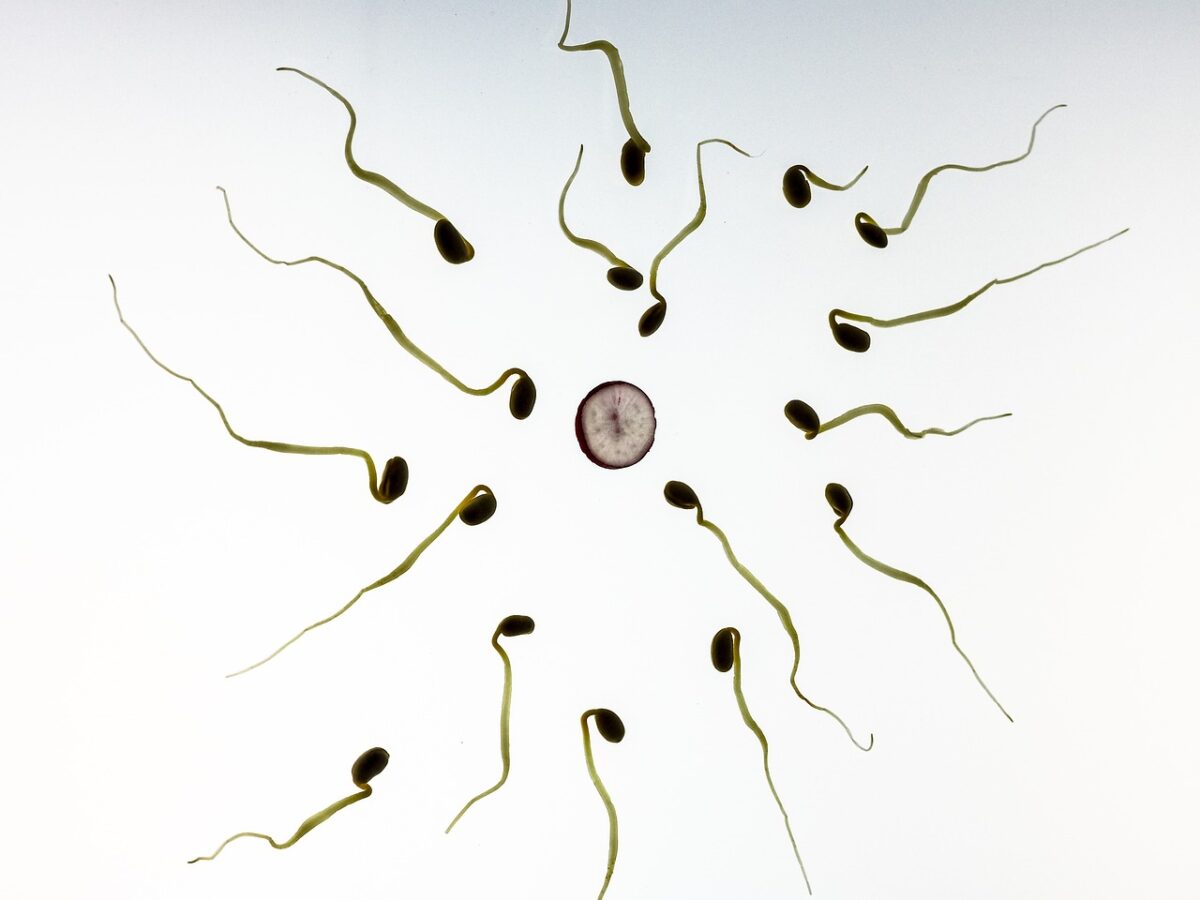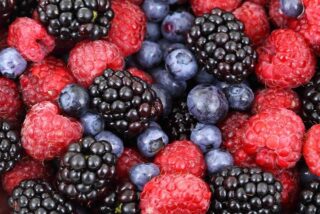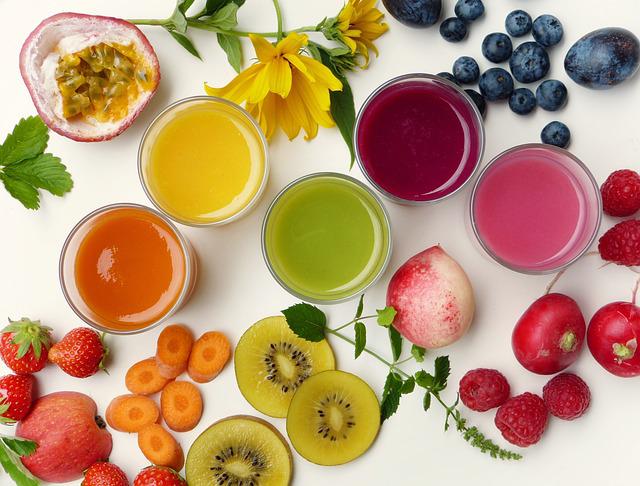According to the CDC, 6.1 million American children have been diagnosed with Attention Deficit Hyperactivity Disorder. Here in Canada the prevalence of ADHD in children is about 5%-9%. If your child has been diagnosed with ADHD, you’re probably wondering what you can do to help them. While there is no cure for ADHD, there are treatments that can help your child focus and succeed. Here are 10 natural treatments for ADHD that really work.
1. Omega-3s
Omega-3 fatty acids are essential for brain development and function. There is a lot of clinical research that supports the use of omega-3 supplements for children with ADHD. One study published in the journal Pediatrics showed that children who took omega-3 supplements had improved symptoms compared to those who didn’t take supplements. Another study, published in the Journal of Attention Disorders, showed that children who took omega-3 supplements had better focus and attention span. These studies suggest that omega-3 supplementation is a safe and effective treatment for ADHD symptoms. You can give your child an omega-3 supplement or increase their intake of fatty fish like salmon, mackerel, and herring.
2. Probiotics
Probiotics are live bacteria that are found in yogurt, sauerkraut, and other fermented foods. They help promote a healthy gut by keeping the balance of good and bad bacteria in check. A study published in the journal Nutrients found that probiotics were able to reduce symptoms of ADHD in children. The study found that the probiotic Lactobacillus rhamnosus was able to improve attention, hyperactivity, and impulsiveness in the children who took it. Another study published in the journal Pediatrics found that a combination of probiotics and prebiotics was able to improve symptoms of ADHD in children. A healthy gut has been linked to better mental health, so probiotics are a great natural treatment for ADHD.
3. Exercise
Exercise is a great way to release energy and improve focus. It also helps improve sleep, which is often an issue for children with ADHD. A study by the University of Massachusetts found that children who exercised for 30 minutes each day had improved focus and less hyperactivity.
4. Caffeine
Caffeine is a stimulant that can help improve focus and concentration. However, it should be used in moderation as too much caffeine can cause side effects like anxiety and irritability. A cup of tea in the morning can potentially help your child focus at school or during homework time. Clinical research has shown that caffeine can help improve cognitive function and memory recall. Additionally, caffeine can help increase energy levels and decrease fatigue. For these reasons, caffeine can be an effective tool for improving focus and productivity. However, it is important to note that caffeine should not be used by children under the age of 12.
5. Limit Screen Time
Screen time includes TV, video games, computers, and phones. Clinical research indicates that screen time can worsen symptoms of ADHD by causing restlessness and impulsivity. In one study, children with ADHD who were limited to 2 hours of screen time per day had improved attention and behavior. Another study found that children who exceeded 2 hours of screen time per day were more likely to have problems with inattention, hyperactivity, and aggressiveness. Therefore, it is important to limit screen time to no more than 2 hours per day for children with ADHD.
6. Get Enough Sleep
Sleep is essential for focus, concentration, and overall mental health. Children with ADHD often have difficulty falling asleep and staying asleep through the night. Establishing a bedtime routine can help your child wind down before sleep and feel more rested during the day. aim for at least 9 hours of sleep per night for children with ADHD.
7. Eat a Healthy Diet
A healthy diet is important for everyone, but it is especially important for children with ADHD. A diet high in sugar and processed foods can worsen symptoms while a diet rich in fruits, vegetables, and protein can improve them. Studies have shown that a healthy diet can help to improve ADHD symptoms. One study found that children who followed a healthy diet had improved focus and attention, less hyperactivity and impulsiveness, and better behavior overall.
8. Drink Plenty of Water
Studies have shown that dehydration can contribute to a decline in cognitive function and overall productivity. In one study, subjects who were mildly dehydrated scored lower on tests of mental performance and vigilance than those who were hydrated. Another study showed that dehydration can cause headaches and fatigue, both of which can lead to decreased concentration. It is therefore important for children to drink plenty of water throughout the day to stay focused and alert.
9. Try Herbal Supplements
Clinical research has shown that some herbal supplements can improve symptoms of ADHD. For example, a study published in the journal Biological Psychiatry found that ginkgo biloba improved attention and processing speed in adults with ADHD. Another study published in the journal Phytotherapy Research found that green tea improved symptoms of ADHD in children. And a study published in the journal Chemistry & Industry found that lemon balm improved focus and attention in children with ADHD.
10. Consider Neurofeedback Therapy
Neurofeedback therapy is a type of biofeedback that uses brain waves to feedback information about attention levels. This information is then used to train the brain to focus better. Neurofeedback therapy has been extensively researched and has been shown to be an effective treatment for ADHD. One study found that children who received neurofeedback therapy showed significantly better attention and behavior than those who did not receive the therapy. In addition, the benefits of neurofeedback therapy were found to last for up to two years after the therapy ended. This makes neurofeedback a desirable treatment for ADHD, as the long-term results are much better than those of medications.
Conclusion:
If your child has been diagnosed with attention deficit hyperactivity disorder (ADHD), you’re probably wondering what you can do to help them cope with the condition. Thankfully, there are many natural treatments that can help improve symptoms without the use of medication. By implementing some (or all) of these treatments into your child’s life, you can help them focus better, sleep better, eat better and feel better .
Any good rock climber knows that in order to perform at your best, you need to take care of your body. That means eating a nutritious diet, appropriate training, sleeping well and staying hydrated. But it can also mean supplementing your diet with the right things to ensure that your body has everything it needs to climb to new heights. Here are 10 of the best supplements for rock climbing.
CBD
CBD, or cannabidiol, is a compound found in the cannabis plant. Unlike its more famous cousin THC, CBD does not have any psychoactive effects. Instead, it has been shown to offer a variety of health benefits, including reducing anxiety and pain. CBD is also being explored as a treatment for several conditions, including epilepsy and Alzheimer’s disease. CBD oil can be taken orally or applied topically, making it a versatile addition to any medicine cabinet.
For athletes, CBD oil has become an increasingly popular way to manage pain and inflammation. CBD is thought to work by interacting with the body’s endocannabinoid system, which plays a role in regulating pain and inflammation. In one study, rock climbers who took CBD before their climb reported reduced pain and inflammation afterwards. CBD is also being explored as a potential treatment for Delayed Onset Muscle Soreness (DOMS), a type of muscle soreness that can occur after exercise. While more research is needed, CBD oil shows promise as a safe and effective way to manage pain and inflammation for athletes of all levels.
Dose: 60mg after training has shown benefit in muscle recovery
Theanine
Theanine is an amino acid that can be found in tea leaves. It is known to have a calming effect on the mind, and it has been shown to improve focus and concentration. Theanine has also been shown to reduce anxiety levels. For these reasons, theanine has become a popular supplement among rock climbers. While theanine can help to improve focus and cognitive function, it is not a miracle drug. Theanine will not make you a better rock climber overnight. However, it can help to improve your mental state while climbing, making it easier to maintain focus and avoid getting overwhelmed by anxiety. If you are looking for an edge while climbing, theanine may be worth considering.
Dose: 100mg has shown improvements in cognitive function.
Protein
Climbing is a strenuous activity that can lead to muscle soreness and fatigue. Adding a protein powder supplement to your diet can help your muscles recover more quickly so that you can get back on the wall sooner. Protein powder is also helpful in preventing injuries since it helps to repair and build muscle tissue. For optimal effects, it is best to take a protein supplement within one hour after climbing.
Dose: 1.2-1.5 grams/kg or 30-33 grams when combined with athletic training.
Iron
Climbing takes a lot of energy, so it’s important to make sure you’re getting enough iron. Iron helps carry oxygen to your cells, which gives you the energy you need to power through a tough climb. If you’re not getting enough iron, you might start to feel fatigued more easily. The best way to get iron is through food sources like red meat, dark leafy greens, and beans. However, if you’re not getting enough from your diet, you might want to consider taking an iron supplement. Just be sure to talk to your doctor first, as too much iron can be harmful.
Dose: Depends on current iron levels. Blood testing may be required. Consult with your doctor or naturopath.
Magnesium
Magnesium is a mineral that is critical for human health. It is involved in over 300 biochemical reactions in the body, including the metabolism of energy, the regulation of blood sugar, and the formation of bones and teeth. Magnesium is also essential for muscle function, and it helps to relieve muscle cramps. For athletes and people who are physically active, magnesium is especially important. This is because Magnesium helps to maintain electrolyte balance and to reduce exercise-induced inflammation.
Rock climbers can benefit from taking magnesium supplements, as this can help to improve their performance and recovery from climbs. Magnesium can also help to prevent injuries by reducing the risk of cramping. For climbers who are looking to improve their results, magnesium may be a valuable addition to their diet.
Dose: Up to 350mg is generally tolerated well.
Creatine
Creatine is a naturally occurring compound in the body that helps to supply energy to cells. It is popular among climbers because it has been shown to improve power and strength output. This can be helpful when you are trying to send a hard route or when you need to pull yourself up a steep wall. Creatine is also one of the most studied supplements on the market, so you can be confident in its safety and effectiveness.
Dose: 20 grams for 5-7 days has shown improvement in both aerobic and anaerobic performance
Beta-Alanine
Beta-alanine is another amino acid that is popular among athletes because it has been shown to improve performance. It works by increasing the amount of carnosine in muscle cells, which helps to buffer lactic acid buildup. This can delay fatigue, arm pump and help you climb for longer periods of time without getting as tired. Beta-alanine is also relatively safe and has been well-studied, so you can be confident in its effects.
Dose: 2-6.4 grams for 3-12 weeks demonstrated improvements in exercise capacity and performance.
Collagen
Collagen is a structural protein that helps to give tissues their strength and elasticity. It is found throughout the body, including in the skin, bones, and tendons. Collagen plays an important role in rock climbing, as it helps to maintain the strength and integrity of the climbers’ hands and feet. Collagen also helps to protect against injury, as it acts as a shock absorber and can help to reduce the impact of falls. In addition, collagen aids in the healing process, helping to repair tissue damage caused by climbing. As a result, collagen is an essential component of rock climbing. without it, climbers would be at a higher risk of injury and would have a difficult time recovering from falls. Taking daily amounts of collagen through supplementation can help ensure that your body has all the required building blocks for collagen synthesis.
Dose: 10-20 grams daily has shown increases in performance.
Ginseng
Ginseng is an herb that has been used for centuries in traditional Chinese medicine. Today, ginseng is commonly taken as a dietary supplement, and it is also said to have many benefits for athletes and outdoor enthusiasts. Ginseng is thought to improve stamina and endurance, and some climbers even swear by it as a way to boost their performance on the rock. Ginseng is available in many forms, including capsules, teas, and tinctures. If you’re interested in trying ginseng for yourself, be sure to talk to your doctor first, as it can interact with some medications.
Dose: 200mg up to 3 times daily for 12 weeks has been shown to be safe. Panax Ginseng can raise blood pressure so it is important to consult with your doctor or naturopath prior to supplementation.
Caffeine
Caffeine is a popular supplement among athletes in general because it has been shown to improve alertness, focus, and power output. This can be helpful when you are trying to maintain focus while climbing. Caffeine is also relatively safe, but it is important to not overdo it as too much caffeine can lead to side effects like jitters and anxiety.
Dose: 2-10mg/kg has shown improvements in athletic performance. Up to 400mg per day has been shown to be relatively safe for most individuals.
Conclusion
These are just a few of the many different supplements that can be helpful for rock climbing. If you are looking to improve your performance, then you may want to consider adding some of these supplements to your diet. As always, make sure to consult with a doctor before starting any new supplement regimen.
References
Isenmann E, Veit S, Starke L, Flenker U, Diel P. Effects of Cannabidiol Supplementation on Skeletal Muscle Regeneration after Intensive Resistance Training. Nutrients 2021;13(9):3028
Foxe JJ, et al. Assessing the effects of caffeine and theanine on the maintenance of vigilance during a sustained attention task. Neuropharmacology. 2012;62(7):2320-2327
McAdam JS, McGinnis KD, Beck DT, et al. Effect of Whey Protein Supplementation on Physical Performance and Body Composition in Army Initial Entry Training Soldiers. Nutrients. 2018;10(9)
McNaughton LR, Dalton B, Tarr J. The effects of creatine supplementation on high-intensity exercise performance in elite performers. (abstract) Eur J Appl Physiol Occup Physiol 1998;78:236-40
Hobson RM, Saunders B, Ball G, et al. Effects of ß-alanine supplementation on exercise performance: a meta-analysis. Amino Acids 2012;43:25-37
Jendricke P, Kohl J, Centner C, Gollhofer A, König D. Influence of specific collagen peptides and concurrent training on cardiometabolic parameters and performance indices in women: A randomized controlled trial. Front Nutr. 2020;7:580918.
Sorensen H, Sonne J. A double-masked study of the effects of ginseng on cognitive functions. Curr Ther Res 1996;57:959-68.
Greer F, Friars D, Graham TE. Comparison of caffeine and theophylline ingestion: exercise metabolism and endurance. J Appl Physiol 2000;89:1837-44
Introduction:
October means apple season is in full swing. And while apples are delicious and a great source of fiber, they also have some surprising health benefits. Here are 5 reasons to make sure you include apples in your diet this fall.
1. Apples Can Boost Your Immunity
One of the essential components of a strong immune system is vitamin C, and apples are packed with it. Just one small apple contains approximately 10% of your daily recommended intake of vitamin C. Vitamin C is a powerful antioxidant that helps protect your cells from damage and supports a healthy immune system.
Apples are also a good source of vitamin A, which is important for a strong immune system. Vitamin A helps the body’s natural defenses against infection and disease. It also helps to keep the skin and mucous membranes healthy. The body needs vitamin A to form white blood cells, which help to fight infection. Vitamin A is found in both the skin and the flesh of apples, so eating a whole apple is the best way to get the benefits.
In addition, apples contain polyphenols, which are plant-based compounds that have been shown to boost immunity.
Apples contain a type of polyphenol called quercetin. Quercetin is a plant-based compound that has been shown to provide a number of health benefits, including boosting the immune system. One study found that quercetin supplements were able to increase the production of infection-fighting cells in the body. Another study found that quercetin supplements were able to reduce the severity and duration of cold symptoms. Polyphenols like quercetin are just one of the many reasons why apples are often referred to as a “superfood.”
2. Apples Can Help Reduce the Risk of Diabetes
Type 2 diabetes is a serious and growing health concern, with over 29 million Americans affected by the disease. Eating apples has been linked with a lower risk of type 2 diabetes. This is likely due to the fact that apples contain pectin. Pectin helps to slow the digestion and absorption of carbohydrates, which helps to keep blood sugar levels stable. Additionally, apples are a good source of antioxidants, which can help improve insulin sensitivity.
3. Apples May Help Lower Cholesterol Levels
One large apple contains about 4 grams of fiber, half of which is pectin. Pectin has been shown to reduce cholesterol levels by binding to cholesterol molecules and removing them from the body before they can be absorbed into the bloodstream.
Research has supported the notion that apples can help reduce cholesterol levels. One study showed that eating two apples a day for four weeks resulted in a seven percent reduction in bad cholesterol and a five percent increase in good cholesterol. Another study found that women who ate an apple a day had lower cholesterol levels and a decreased risk of heart disease. The antioxidants and fiber in apples are thought to be responsible for these benefits.
4. Apples Can Help Keep Your Heart Healthy
In addition to reducing cholesterol levels, apples can also help keep your heart healthy by preventing plaque build-up in your arteries. This is thanks to the antioxidants found in apples, which help keep your arteries clear and prevent inflammation. One study published in the “European Journal of Nutrition” showed that eating apples every day for four weeks can reduce bad cholesterol levels by up to 10 percent.
5. Apples Can Aid in Weight Loss
Because they’re high in fiber and water, apples can help you feel fuller longer and prevent overeating throughout the day. 
Research indicates that apples may play a role in weight loss. One study showed that obese women who ate an apple before lunch felt more satiated and ate fewer calories than those who didn’t have an apple. Another study found that eating an apple at least three times per day helped participants lose weight and body fat. This may be due to the high fiber and water content of apples, which can help you feel fuller longer and prevent overeating. Additionally, apples are a low calorie food, providing just 95 calories per medium-sized apple. They’re also a good source of energy-boosting phosphorus.
Conclusion:
The next time you’re at the grocery store, be sure to pick up a few extra apples. Not only are they delicious and nutritious, but they also have some impressive health benefits. Apples can boost your immune system, lower your cholesterol levels, and even help you live longer. So stock up while they’re in season and enjoy all the benefits this versatile fruit has to offer.
Multiple sclerosis is a debilitating neurological disorder that can often leave patients feeling hopeless and alone. But there is hope! In this blog post, we will explore nine natural treatments for multiple sclerosis that have helped my Toronto patients alleviate some of the symptoms associated with the disease.
1. Acupuncture
Acupuncture is a traditional Chinese medicine technique that involves inserting thin needles into the skin at specific points on the body. It is believed that this helps to clear energy blockages and promote balance and healing within the body. There is some evidence to suggest that acupuncture may be effective in treating symptoms of multiple sclerosis, such as fatigue, pain, spasticity, and bladder problems.
2. Herbal Medicine
There are many different herbs that have been traditionally used to treat various ailments, including multiple sclerosis. Some of the most common herbs used for MS include ginger, ginkgo biloba, turmeric, milk thistle, lions mane and green tea. These herbs can be taken in pill form or brewed into a tea. It is important to talk to a Naturopathic Doctor or qualified herbal practitioner before starting any herbal treatment regimen, as some herbs can interact with medications you may be taking for your MS.
3. Dietary Changes
Making some simple dietary changes can also help improve symptoms of MS. One study showed that following a Mediterranean diet—which includes lots of fresh fruits and vegetables, whole grains, fish, and olive oil—may help reduce inflammation and slow the progression of MS. Other helpful dietary changes include avoiding processed foods and food allergies, getting enough vitamin D, and drinking plenty of water.
Food sensitivity testing can help to identify gluten sensitivity and other food sensitivities in people with MS and other autoimmune diseases. The most common type of food sensitivity test is an Elimination Diet, in which potential triggering foods are eliminated from the diet for a period of time and then reintroduced one at a time to see if symptoms occur. However, Elimination Diets can be difficult to stick to and can take months or even years to complete. Another option is an IgG Food Sensitivity Test, which measures levels of immunoglobulin G (IgG) antibodies in the blood.
Antibodies are produced by the immune system in response to perceived threats, such as bacteria or viruses. However, in people with food sensitivities, the immune system overreacts to harmless proteins found in certain foods, producing excessive amounts of IgG antibodies. IgG Food Sensitivity Tests can be helpful in identifying food sensitivities because they can measure levels of IgG antibodies specific to each individual food protein. This allows for a more targeted Elimination Diet and can speed up the diagnosis process. If you think you might have a food sensitivity, you can book an appointment for testing.
4. Exercise
Exercise is important for everyone, but it is especially crucial for those with MS. Regular physical activity can help reduce fatigue, improve mobility and coordination, ease depression and anxiety, promote better sleep, and boost overall fitness and well-being. Even if you are not able to do strenuous exercise due to your symptoms, there are still many low-impact activities you can do to get moving and feeling better.
5. Stress Reduction Techniques
Stress is a well-known trigger for multiple sclerosis (MS) flare-ups. Managing stress is therefore an important part of MS treatment. Stress management techniques such as relaxation therapy and yoga can be helpful, but some patients may also benefit from taking adaptogens. Adaptogens are a class of natural substances that help the body to adapt to stress by reducing the production of stress hormones. They have been used for centuries in traditional Chinese and Indian medicine, and are now gaining popularity as a natural treatment for stress and anxiety. Some common adaptogens include ashwagandha, holy basil, and ginseng. If you are interested in trying adaptogens, talk to your Naturopathic doctor first to discuss whether they are right for you.
6. Vitamin D
Vitamin D is an important nutrient that helps the body absorb calcium. It’s found naturally in very few foods, so most people get it from exposure to sunlight. Vitamin D is also available in supplement form. Some studies suggest that vitamin D may play a role in helping to prevent or treat MS. If you think you might be deficient in vitamin D, book an appointment with us for vitamin D testing or talk to your doctor.
Sometimes supplementation is ineffective or can take too long to bring up severely deficient vitamin D levels. I offer these patients the option of a high potency vitamin D injection that will bring levels up very quickly.
7. Mitochondrial Support
Mitochondrial support using resveratrol, alpha lipoic acid, coenzyme Q10 and NAD boosters is a promising new treatment for patients with multiple sclerosis. Mitochondria are the powerhouses of the cell, and they are responsible for producing energy. In patients with multiple sclerosis, the mitochondria are not working properly, and this can lead to fatigue and other symptoms. Resveratrol, alpha lipoic acid, coenzyme Q10 and NAD boosters help to support the mitochondria and improve their function. In a small study of patients with multiple sclerosis, those who received mitochondrial support had less fatigue and improved quality of life.
8. Hormones
Hormones play an important role in the human body, regulating everything from metabolism and mood to reproduction and energy levels. When hormones are out of balance, it can lead to a host of problems. For patients with multiple sclerosis (MS), hormone imbalances can cause fatigue, weight gain, depression, and loss of libido. Hormone testing can help to identify imbalances and allow for tailored treatment plans that use bio identical hormone replacement therapy to restore balance. By addressing hormone imbalances, patients with MS can improve their quality of life and potentially reduce their risk of disease progression.
9. Cannabinoids
Recently, cannabinoids have emerged as a potential therapy for MS. Cannabinoids are compounds found in the cannabis plant, and they have been shown to have anti-inflammatory and neuroprotective effects. In animal studies, cannabinoids have been shown to reduce inflammation and nerve damage in models of MS. In small clinical trials, cannabinoids have been shown to improve symptom control in patients with MS. These promising results have led to the development of several cannabinoid-based medications for MS. Dr. Shawn Meirovici N.D. is experienced cannabis educator in Toronto, Ontario. Dr. Shawn can help patients decide if cannabis therapy would be a good addition to their treatment plan.
Conclusion:
If you are living with multiple sclerosis (MS), know that you are not alone—there are millions of other people around the world dealing with this disease every day. And while there is no cure for MS at this time, there are many different treatments that can help alleviate some of the symptoms associated with the disease. In this blog post, we explored nine natural treatments for MS—acupuncture , herbal medicine , dietary changes , exercise , stress reduction techniques, vitamin D, mitochondrial support, hormone balancing and cannabinoid therapy. Make an appointment with us or talk to your doctor about which treatments might be right for you.
What is a healthy lunch for school kids?
You want your kids to have a healthy lunch, but you’re not sure what that looks like. You know they need protein, carbs, phytonutrients and fibre, but how much of each? And what are some good sources of each? Here’s a quick rundown of what a healthy lunch for school kids looks like.
Protein
Kid’s need about 5-6 ounces of protein per day. As a parent, it can be difficult to ensure that your child is getting enough protein in their diet. The good news is that there are plenty of great sources of protein available, including lean meats, tofu, beans, lentils, nuts and seeds.
However, one challenge parents may face is finding ways to work around common nut and seed allergies. If your child or a classmate is allergic to nuts or seeds, be sure to check with your naturopath or pediatrician for suggestions on alternate sources of protein. There are plenty of good options available, including lean meats, tofu, beans, lentils and plant-based protein powders.
Carbs
Carbs are the body’s main source of energy. Kids need about 3-5 ounces of carbs per day. Complex carbs are the body’s main source of energy. They are made up of long chains of sugar molecules that the body can slowly break down and use for energy. Simple carbs are made up of short chains of sugar molecules and the body can break them down quickly for energy. Good sources of complex carbs include fruits, vegetables and whole grains. Some examples of complex carbs that kids would enjoy include:
-Oatmeal
-Quinoa
-Brown rice
-Sweet potatoes
-Fruits like apples, bananas and berries
-Vegetables like broccoli, cauliflower and carrots
Phytonutrients
Phytonutrients are important for kids because they help protect against disease and promote good health. Phytonutrients include antioxidants, which are important for helping to protect the body from damage caused by harmful molecules called free radicals. Free radicals can damage cells, leading to diseases such as cancer. Antioxidants help to counteract the effects of free radicals, preventing or slowing down cell damage. Some good sources of phytonutrients for kids include fruits, vegetables, herbs and spices. Some examples of antioxidant rich foods that kids would enjoy include blueberries, raspberries, strawberries, blackberries, cherries, tomatoes, bell peppers, broccoli, kale and spinach. These foods are packed with nutrients that are good for kids’ growing bodies.
Fibre
Fibre is an important part of a healthy diet. It helps the body feel full and can help with weight loss and maintenance. Kids need about 25 grams of fibre per day. Fibre comes in two forms: soluble and insoluble. Soluble fibre dissolves in water and can help lower cholesterol and blood sugar levels. Good sources of soluble fibre include oats, legumes, apples and berries. Insoluble fibre does not dissolve in water and helps with bowel regularity. Good sources of insoluble fibre include whole grains, vegetables and fruits with skins.
Conclusion
A healthy lunch for school kids should include a variety of protein, carbohydrate and fiber-rich foods to ensure that they are getting the nutrients they need to stay energized and focused throughout the day. While nuts and seeds are healthy sources of protein, fat and fiber, there are other healthy alternatives for those whose schools do not allow them. Parents should always consult with their pediatric naturopath, pediatrician or dietician to create a healthy lunch plan that meets their child’s specific needs.
Are you feeling tired, moody, and bloated? You might be experiencing the symptoms of hormone imbalance. This is a common problem for women, especially mothers. But don’t worry, there are natural treatments that can help restore your hormones to balance. In this blog post, we will discuss what hormone imbalance is, its symptoms, and how to treat it naturally. Keep reading to learn more!
Estrogen Dominance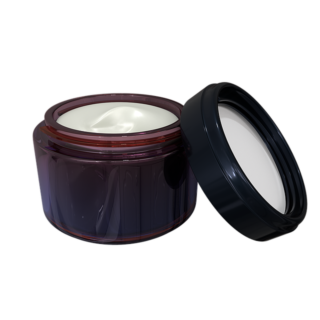
Estrogen dominance is a condition that can occur when there is an imbalance of estrogen and progesterone in the body. When estrogen levels are too high relative to progesterone levels, it can lead to a number of symptoms, including mood swings, bloating, fatigue, and irregular menstruation.
Estrogen dominance can be caused by a variety of factors, including stress, diet, and certain medications. If you are experiencing any of these symptoms, we can help to properly diagnose and treat the condition. Estrogen dominance is a common hormonal imbalance that affects many women, but with proper treatment, it can be effectively managed.
BHRT
Bioidentical hormone replacement therapy is a treatment for estrogen dominance that involves using hormones that are identical to the ones produced by the body. This type of therapy can be used to treat a variety of symptoms associated with estrogen dominance, such as hot flashes, night sweats, mood swings, and weight gain. Bioidentical hormone replacement therapy can also help to protect against osteoporosis and heart disease.
While traditional hormone replacement therapy uses synthetic hormones that are not identical to those produced by the body, bioidentical hormone replacement therapy uses hormones that are exact replicas of the ones naturally produced by the body. This makes bioidentical hormone replacement therapy a more natural and effective treatment for estrogen dominance.
PCOS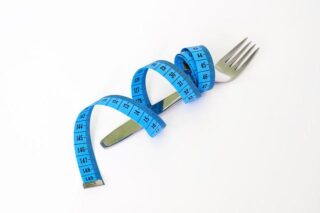
Polycystic ovary syndrome (PCOS) is a hormonal disorder that affects women of reproductive age. The four main features of PCOS are insulin resistance, high levels of testosterone, low levels of follicle-stimulating hormone (FSH), and high levels of luteinizing hormone (LH). Insulin resistance is the most common cause of PCOS, and it occurs when the body doesn’t use insulin effectively. This leads to higher than normal levels of Insulin in the body. High Insulin levels increase testosterone production, which can interfere with the development of follicles on the ovaries. As a result, ovulation may be irregular or may not occur at all.
FSH is responsible for stimulating the growth of follicles on the ovaries, and LH is responsible for triggering ovulation. When FSH and LH are out of balance, it can lead to PCOS.
Cortisol is a stress hormone that can also contribute to PCOS. It does this by increasing Insulin Levels and affecting how the body uses glucose. As a result, women with PCOS often have higher than normal levels of Cortisol in their bodies.
PCOS can cause a variety of symptoms, including weight gain, irregular menstruation, fertility problems, low sex drive, and mood swings. PCOS can also cause acne and excess hair growth. While there is no cure for PCOS, there are treatments that can help manage the symptoms.
PCOS is thought to be caused by a combination of genetic and environmental factors. A woman’s risk of developing PCOS increases if she has a family history of the condition. PCOS is also more common in women who are overweight or obese. If you think you may have PCOS, talk to your doctor about your symptoms.
Diet and exercise are two of the most important factors in managing PCOS. Both help to regulate hormone levels and improve insulin sensitivity. One of the best ways to get started is to eat a nutritious diet and to get at least 30 minutes of exercise every day.
Additionally, supplements like l-carnitine, inositol, and vitamin D can be helpful in managing PCOS symptoms. L-carnitine helps to boost energy levels and improve fertility, while inositol helps to regulate hormones and reduce inflammation.
Vitamin D is essential for fertility and has also been shown to improve insulin sensitivity. All of these nutrients are available in food sources or supplements. By making dietary and lifestyle changes, you can help to manage your PCOS symptoms naturally.
Chronic Stress
Estrogen, testosterone, and other hormones play a vital role in the human body. They are involved in regulating mood, energy levels, metabolism, and sexual function. However, these hormones can be easily disrupted by stress.
When the body is under stress, it releases a hormone called cortisol. cortisol helps the body to deal with short-term stressors by increasing heart rate and blood pressure. However, if cortisol levels remain high for long periods of time, it can interfere with the production of other hormones, including estrogen and testosterone. This can lead to a number of problems, such as fatigue, weight gain, and difficulty concentrating.
Additionally, stress can also disrupt the delicate balance of progesterone and estrogen, which can lead to irregular periods and hot flashes in women. Therefore, it is important to manage stress in order to maintain hormone balance.
Diet, exercise, meditation, sleep and adaptogens are all effective ways to manage stress naturally. Diet can help by reducing inflammation and providing the nutrients needed for the body to function optimally. Exercise releases endorphins, which have mood-boosting effects, and also helps to reduce levels of the stress hormone cortisol.
Meditation helps to focus and calm the mind, and research has shown that it can be as effective as medication for treating anxiety and depression. Sleep is essential for rest and recovery, and 7-8 hours per night is recommended for most adults.
Adaptogens are a unique class of herbs that help the body to adapt to stressors by modulating the stress response. When used regularly, they can help to prevent burnout and promote resilience. Managing stress naturally requires a holistic approach, but incorporating these simple strategies into your daily routine can make a big impact.
If you’re experiencing any of the symptoms we’ve talked about, it might be time to see a naturopathic doctor. NDs are experts in hormonal balance and have many natural and effective treatments at their disposal. Don’t suffer in silence – book a consultation today and start feeling like yourself again.
Do you feel like you’re always getting sick? Are you constantly battling colds and the flu? If so, you may need to boost your immunity. Luckily, there are a number of natural treatments that can help. In this blog post, we will discuss some of the best ways to improve your immune system naturally.
Vitamin D for immunity
Vitamin D is essential for a strong immune system. It helps the body to produce antibodies, which fight infection. Vitamin D can be found in fatty fish, eggs, and fortified milk. You can also get Vitamin D from exposure to sunlight.
Trouble keeping up with vitamin D supplements and worried about sun exposure? Not to worry, at my clinic we offer the option of a vitamin D injection. Under professional supervision, this is a safe and effective way to boost vitamin D levels quickly.
Vitamin C for immunity
Another important nutrient for immunity is Vitamin C. Vitamin C helps the body to create white blood cells, which fight infection. Vitamin C can be found in citrus fruits, tomatoes, bell peppers, and broccoli.
Intravenous vitamin C is a great way to get a high dose of Vitamin C. By bypassing digestion, IV vitamin C can boost levels quickly. Intravenous vitamin C can also increase blood concentrations at levels that directly kill pathogens and inhibit cancer growth.
Zinc for immunity
Zinc is another important mineral for immunity. It helps the body to create new cells and enzymes that fight infection. Zinc can be found in oysters, beef, pork, chicken, and beans.
Zinc can also be added to intravenous infusions for an added immune system boost.
Elderberry Syrup
If you’re looking for a kid friendly and great tasting way to boost your immunity, elderberry syrup is a great option. Elderberries are rich in Vitamin C, Vitamin A, and antioxidants. They have been shown to reduce inflammation and fight infection. You can find elderberry syrup at most health food stores.
Ginger for immunity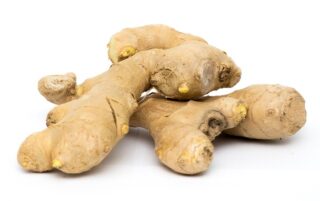
Ginger is another great option for boosting your immunity. Ginger is a natural anti-inflammatory and can help to reduce congestion. It can also help to soothe a sore throat. You can find ginger in the form of capsules, tea, or syrup.
Garlic for immunity
Garlic is another excellent food for boosting your immunity. Garlic is rich in Vitamin C, sulfur, and antioxidants. It has been shown to fight infection and reduce inflammation. You can add garlic to your food or take it in supplement form.
Selenium for immunity
Selenium is a trace mineral that is important for immunity. Selenium helps the body to produce antibodies, which fight infection. It can be found in Brazil nuts, tuna, shrimp, and eggs.
Selenium can also be added to an intravenous infusion for an added immune boost.
Vitamin A for immunity
Vitamin A is an important nutrient for immunity. Vitamin A helps the body to produce white blood cells, which fight infection. Vitamin A can be found in sweet potatoes, carrots, dark leafy greens, and squash.
Probiotics for immunity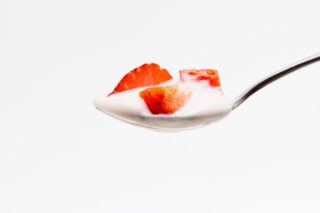
Probiotics are live bacteria that are good for your gut health. Probiotics help to keep the balance of good and bad bacteria in your gut. This can help to improve digestion and boost immunity. You can find probiotics in yogurt, kimchi, sauerkraut, and kombucha.Probiotic supplements are also available.
There you have it! These are just a few of the best ways to boost your immunity naturally. By including these foods and supplements in your diet, you can help to keep yourself healthy and avoid getting sick. In individuals requiring an extra boost, injection and intravenous treatments are available and effective. Do you have any other favourite natural immunity boosters? Share them with us in the comments
What is PCOS?
Finding an effective treatment for Polycycstic ovarian syndrome (PCOS) is important to me for two distinct reasons. 5-10% of woman are impacted by PCOS in their lifetime making PCOS a common and treatable condition in my Naturopathic practice. The second reason is that it is a condition that my wife has struggled with for many years therefore making it a syndrome that hits close to home.
PCOS is a bit of a misnomer as it is a continuum of symptoms and doesn’t necessarily have to include ovarian cysts. It is however characterized by several common objective findings including irregular periods, infertility, shifts in hormone balance (DHEA, Testosterone, LH, FSH), hirsutism (hair growth on the lip, chin and abdomen), Hair loss (Male pattern head hair loss), acne (typically on the lower jaw), high levels of insulin due to insulin resistance, and unexplained weight gain (especially around the abdomen).
Although we still do not know all the mechanisms involved as to why some women develop PCOS, there does seem to be a genetic component. Environmental toxins such as BPA seem to play a role, and gastrointestinal dysbiosis (unfriendly bacteria in the gut) plays a role as well.
Conventional Treatment for PCOS
Some of the more common conventional treatments of PCOS include birth control pill (to regulate irregular periods and hormone levels), metformin (a insulin sensitizing drug that helps to control blood sugar levels commonly used in diabetes), and spironolactone (a diuretic that also has the ability to block a type of testosterone formation called DHT). While these treatments can be helpful in the short-term they do not always address the root cause of PCOS and therefore ultimately fail in the long term. Some of these causes include hormone disrupters in the environment and diet, and gastrointestinal dysbiosis (leading to the production of inflammatory compounds that compromise insulin function).
Holistic Treatment for PCOS
Luckily there are relatively easy and low cost solutions to many of the fundamental causes of PCOS. As a Naturopathic Doctor I have the privilege and ability to take a detailed medical history. Doing so can point me in the direction(s) as to where these foundational imbalances are occurring. For instance if the patient has a history of gastrointestinal concerns, (constipation, diarrhea, gastritis, colitis) that informs me to focus investigation on the gastrointestinal tract. If a patients main concern is infertility and irregular periods I will shift focus into hormone balance. It may also be the case that a patient has several concern at the same time, which is not uncommon in PCOS. Once I know where to focus we can run specialized tests such as comprehensive stool analysis, female hormone panels, nutrient level panels, food sensitivity testing and environmental toxins. This aids in narrowing down where to implement the bulk of the treatment protocol. There are some general recommendations that are sure to aid all women with PCOS such as exercise, reduced carbohydrate diets and lowering exposure to petrochemicals. However, the medical history and specialized testing can be a guide for more specific recommendations.
Functional Testing for PCOS
A nutrients panel test can help determine if there are specific nutritional deficiencies such as low levels of vitamin D, vitamin A and omega-3 fatty acids, which tend to be common in PCOS. A female hormone panel can determine if there are specific imbalances with sex hormones. These imbalances can potentially be corrected with dietary recommendations, bio-identical hormone replacement, and nutraceutical supplements. Evidence of dysbiosis in gut from a stool analysis can be reversed with dietary recommendations that promote colonization of helpful butyrate producing bacteria. Nutraceuticals containing antibiotic herbs can preferentially kill harmful bacteria while protecting good bacteria. Probiotic supplements containing specific strains of bacteria and prebiotic fibre can be very effective. Food sensitivity testing can help confirm if there are specific foods in the diet that are activating an immune response, causing further inflammation in the gut. Environmental toxin analysis would shed light on high levels of exposure to particular toxins, most of which are known hormone disruptors. Even the simple testing of insulin levels and blood sugar can lead to recommendations for easily accessible compounds like inositol, L-carnitine and chromium which can effectively increase insulin sensitivity.
Conclusions
The take home message is that PCOS is an extremely common and often disruptive condition for a significant amount of women worldwide. The conventional treatment of PCOS often does not provide long term solutions and can have significant side effects. Simple and inexpensive solutions through dietary, supplement and lifestyle recommendations can address the root causes of PCOS and bring about significant symptom relief with long-term sustainability. I therefore encourage anyone suffering from PCOS who hasn’t found an effective solution to contact a local Naturopathic Doctor or Functional Medicine Doctor for an assessment. If you would like to contact me, you can do so through the appointment page by clicking the link in the menu bar. The sooner you start to address the root causes the easier and quicker long lasting symptom relief can be achieved. That being said, implementation of a functional medicine approach to PCOS will undoubtably be helpful at any stage and at any age.
Fasting for six years
I thought it was a good time for me to personally reflect on the last six years of intermittent fasting. Yes, for the last six years I have been following a relatively strict program of fasting for 16-20 hours of the day. Usually this means having my last meal of the day around 6pm and my first meal the following day at 11am.
I remember first hearing about the benefits of intermittent fasting (IF) at a medical conference organized by the Association for the Advancement of Restorative Medicine back in 2016. After Dr. Denis Wilson M.D. spoke about all the clinically supported benefits of IF as well as his own personal journey with IF, I was sold!
Fasting and Climbing
That was around the same time I started to take rock climbing seriously. A was training 2-3 days per week and for around 2 hours each session. I decided it would be an interesting experiment to combine IF with my morning training. I was hitting the gym while in a fasted state (usually around 16 hours at that point) and would train as hard as I could.
When the body is in a post 14 hour fast it starts to convert fat into an energy source called ketones. This is because all the sugar stored in the body has been used up. Exercising while fasting speeds up this process. I was amazed to see how quickly this combination of fasting and exercise transformed my body and my health. Over the course of a year I lost 15lb and went up several grades in my climbing. My climbing partners couldn’t believe I was able to climb hard on an empty stomach, but I actually felt lighter and clearer. I would try to have my first meal of the day within an hour after workouts for optimal protein metabolism to build muscle. I would regularly get comments from familiar faces at the gym asking if I’m doing anything special outside of the gym. I simply told them that I’m fasting and climbing. Pretty simple but very effective.
Finding the right program
Over the following 5 years I had short 2-3 week periods where I would take a break from IF but would soon return as I felt my best, looked my best and climbed my best while on a pretty strict IF program. I have since recommended IF to dozens of patients, the majority of whom see results within a few months. One of my biggest supporters and now followers of IF is my dad. He saw such dramatic results that IF is now a regular lifestyle habit for him as well.
I dabbled a few times with doing pretty long fasts (20-23 hours) and eating only one meal per day but I found that this was a bit hard on my body. I was getting irritable and was not performing very well at the gym. I now have a pretty good understanding of how many hours my body likes to fast for and how many meals per day is best.
Everyone is going to find a sweet spot for themselves. I don’t recommend forcing the body into a particular program but to try fasting for different lengths of time and see what feels and works best. It does take a little getting used to at first but it is important to remember that this is a very natural state for the human body.
It’s only natural
Through most of human evolution humanity had to go for extended periods of time without food. In fact, an abundance of food at our beck and call is likely contributing to a lot of chronic disease in our modern way of living. Many religious traditions still practice fasting in order to clear the mind, body and spirit. Centuries of cultural practice as well as hundreds of recent studies are in support of fasting in one form or another. It is one of the cheapest, simplest and most effective medical programs I can recommend for a patient.
What lies ahead
Looking ahead to the next decade, I don’t see myself giving up IF anytime soon. There are a few other lifestyle changes I would like to implement but IF will continue to be the backbone of my personal health and wellness program. There are some individuals including in pregnancy where IF is not recommended. I encourage those of you curious about IF or trying it out, to at least have a consultation with a health professional like myself. The benefit of being supervised by a Naturopathic Doctor is the peace of mind that your are practicing something that is safe for your body, you have someone to answer questions as they arise and even to run blood tests if necessary. If I have inspired at least a few people to give IF a try then I have passed along a valuable lifestyle tool as it was passed to me six years ago. Happy fasting everyone!

